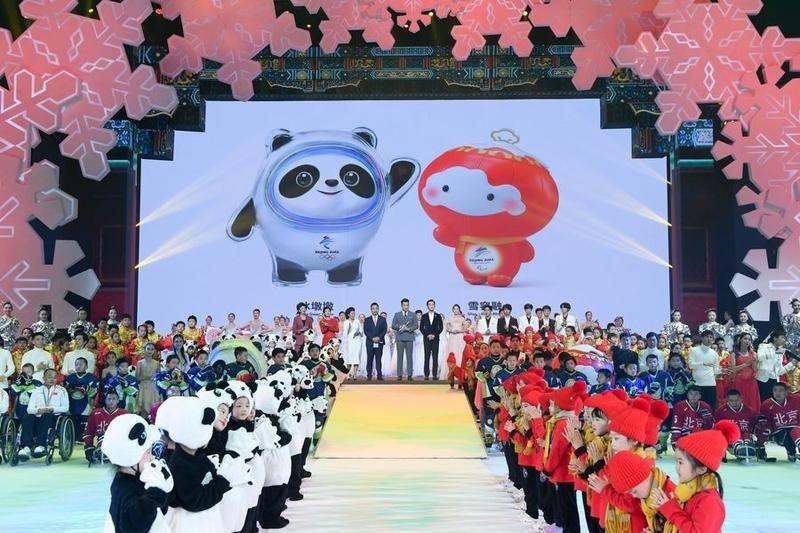 In this Sept 17, 2019 photo, the mascot of Beijing 2022 Olympic Winter Games Bing Dwen Dwen (left) and that of the 2022 Paralympics Shuey Rhon Rhon are present during the launch ceremony in Beijing. (PHOTO / XINHUA)
In this Sept 17, 2019 photo, the mascot of Beijing 2022 Olympic Winter Games Bing Dwen Dwen (left) and that of the 2022 Paralympics Shuey Rhon Rhon are present during the launch ceremony in Beijing. (PHOTO / XINHUA)
A campaign has been launched to give stronger protection to intellectual property rights involving Olympic symbols, China's top IPR regulator said on Wednesday.
The campaign, launched by China National Intellectual Property Administration and the State Administration for Market Regulation in October, will last to the end of June, Zhang Zhichang, head of CNIPA's intellectual property protection department, told a news conference.
Zhang said the campaign will also help ensure the Beijing 2022 Winter Olympics and Paralympics can be run smoothly.
During the campaign, those who infringe patents or trademarks involving Olympic symbols will be harshly punished, he said, adding that IPR-related inspections in places that produce or sell Olympic products as well as at e-commerce giants need to be intensified.
Additionally, the administrations plan to increase education on IPR-related laws to enhance people's protection awareness, with the building of a quick response system to share IPR-related information and evidence of infringements in a timely manner, Zhang said.
"The campaign will improve public awareness of the need to respect IPR concerning the Winter Olympics, and it will also contribute to helping our country establish a good image of strictly protecting IPR in the world," he added.
This year, China has set several goals and mapped out a few plans on IPR protection and development to bolster the country's high-quality growth and stimulate innovation.
During the 14th Five-Year Plan (2021-25), for example, administrative, legal and joint protection of IPR will be strengthened, and protection for new forms of business and new fields will also be promoted, according to an IPR protection and application plan made public by the State Council, China's Cabinet, in October.
In September, the country also issued a long-term IPR plan that said the added value of patent-intensive industries is expected to account for 13 percent of GDP by 2025, with China's IPR competitiveness to rank among the top in the world by 2035.
To reach the goals, CNIPA has specified measures such as providing more convenient services in handling IPR affairs and fighting against irregularities in IPR applications.
Hu Wenhui, a spokesman for CNIPA, said on Wednesday that it has improved protection systems for a few new industries, including big data, artificial intelligence and gene editing.
He said that since the beginning of this year, about 815,000 improper patent applications have been exposed. Some 376,000 malicious trademark registrations have also been canceled, Hu added.



